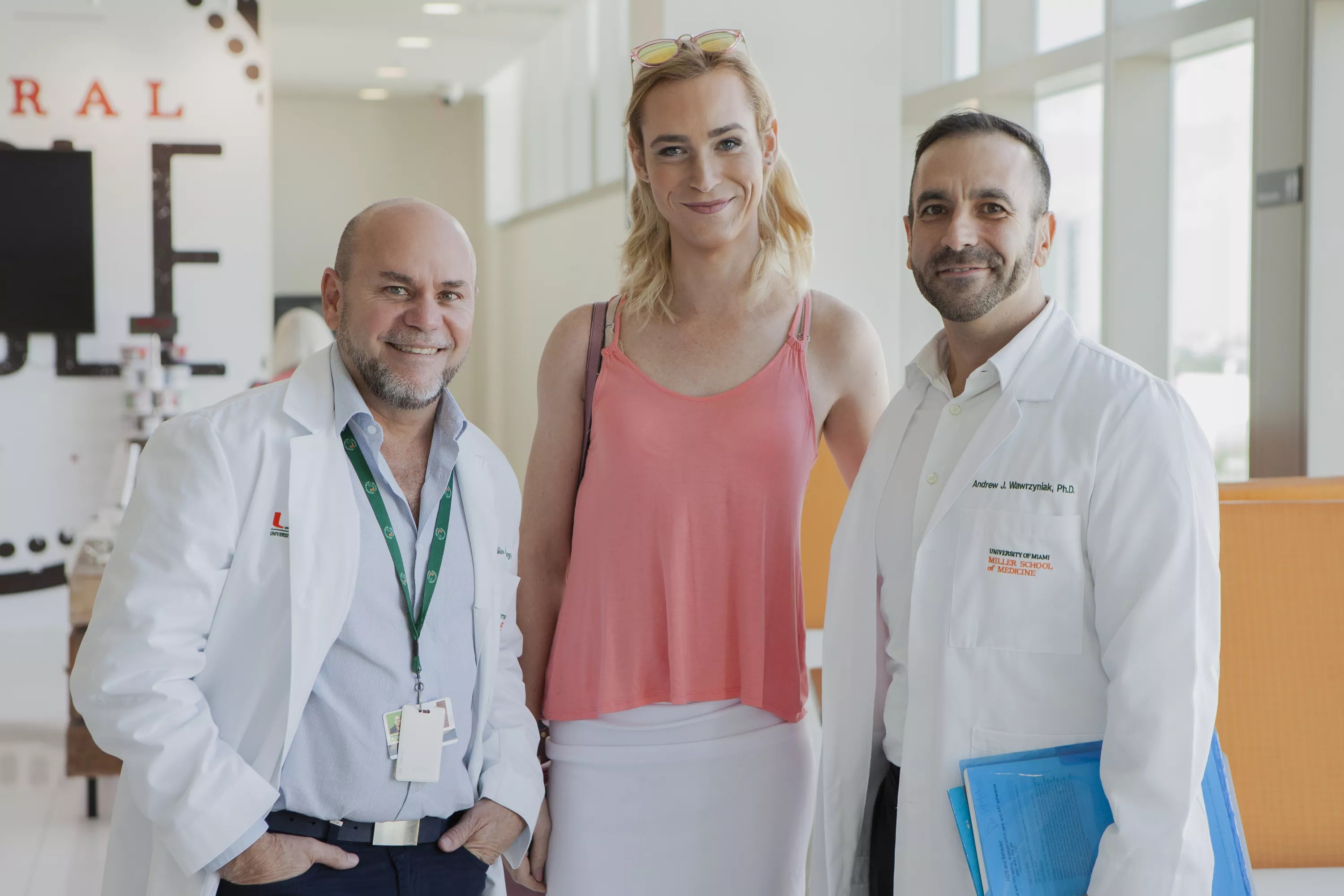
Gustavo Frendt/University of Miami

Audio By Carbonatix
Among the general population, less than 1 percent of Americans are HIV positive. But for transgender women, the rate is astonishingly higher – almost 22
No one knows exactly why.
Now, researchers at the University of Miami’s Miller School of Medicine are looking for answers. A new study is following more than a thousand trans women for two years to try to figure out what puts them at higher risk and, hopefully, how to stop the trend.
“It’s not well understood, and it’s important to understand why this is happening,” says Andrew Wawrzyniak, a University of Miami psychologist and researcher in the study.
The National Institutes of
Access to healthcare in Miami is notoriously bad, with a high uninsured rate and the state Legislature’s refusal to expand Medicaid. For transgender people, that problem is even more pronounced, says University of Miami infectious disease physician Allan Rodriguez, who’s heading up the research locally.
“Miami has a problem in terms of healthcare delivery in general and it’s certainly more prevalent in vulnerable populations,” he says. “And this is one of our most vulnerable populations.”
Many transgender people struggle to find employment, meaning they lack the health insurance that would give them access to preventative care. And when they do seek medical care, they sometimes face ridicule, misgendering, or dismissive attitudes.
Madison Waldron, 32, a participant in the study, says she feels lucky to have insurance coverage and providers she trusts.
“I know many, many women who are just not as privileged as I am,” she says.